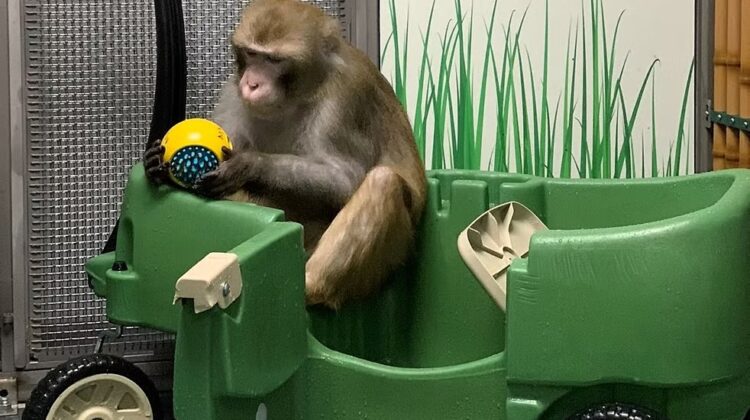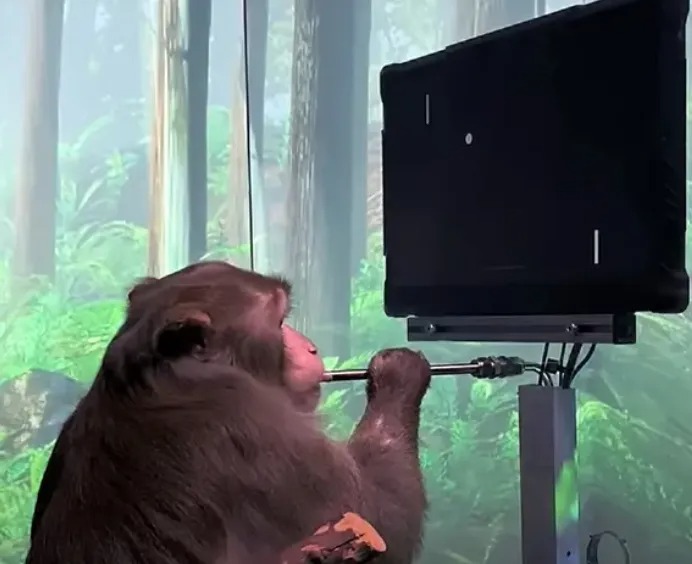
Elon Musk’s Neuralink is a neurotechnological company focused on developing brain implant interfaces. They allegedly killed or euthanized 15 of the 23 monkeys used in their experiments. Several animal rights organizations have charged the company with nine violations of the Federal Animal Welfare Act. The University of California, Davis was similarly accused.
From 2017 to 2020, several tests were conducted at the University of California, Davis. The experiment included 23 monkeys with Neuralink chips implanted in their brains. According to a report from California’s open records law, 15 of those test subjects died by 2020.
The PCRM (Physicians Committee for Responsible Medicine) filed a regulatory complaint with the US Department of Agriculture, claiming to have proof that the company subjected the test monkeys to illogical suffering.
The PCRM also claimed to have 700 pages of relevant documents obtained from the University of California, Davis via a public-records request.
The company is currently working on “ultra-high bandwidth brain-machine interfaces to connect humans and computers.” They claim that these brain chips can aid people suffering from neurological disorders such as dementia, spinal cord injuries, and even Alzheimer’s disease.
NEURALINK defended the use of test monkeys, claiming that animals should be tested before humans.
Neuralink defended themselves by claiming that animal testing was imminent. They were required to test “all novel medical devices and treatments” on animals before administering them to humans.
In one of their previous videos they also stated that they want to treat test animals “humanely”:
“At Neuralink, we are completely committed to working with animals in the most humane and ethical manner possible,” the company said.
“Every animal’s use was meticulously planned and considered in order to balance scientific discovery with the ethical use of animals.”
Several images of the laboratory where the animals were kept were shared by the company in question. They also claimed that Neuralink exceeded the industry standard for living space by about 150 times. The test monkeys’ diet was also posted on the blog, which was conveniently missed by “a large, dedicated team of veterinarians, veterinary technicians, behaviorists, enrichment technicians, and animal care specialists.”
The company also claimed that if the test monkeys were hesitant, they were never forced to participate in the training. They cited a 2020 public demonstration in which Gertrude, a pig, preferred to forage through a straw rather than appear on stage.
“Today, Gertie lives the farm life and spends her days lounging in the sun with her two best friends Harriet and Frieda,” Neuralink said, adding that she was one of several test animals who had retired to sanctuaries after contributing to the study.
“At Neuralink, we are never satisfied with current animal well-being standards, and we will always push ourselves to do more for the animals that contribute so much to humanity,” the blog concluded.
“We also hope that one day, animals will no longer be required for medical research.”

Throughout the process, Neuralink admitted to euthanizing eight monkeys. Two were euthanized at “planned end dates to collect important histological data,” while the other six died as a result of surgical complications or device failures.
Despite the aforementioned incidents, Neuralink was accredited by the AAALAC (Association for the Assessment and Accreditation of Laboratory Animal Care) International and had never received a citation from the US Department of Agriculture inspections of its care program and facilities.
According to recent website updates, Neuralink is preparing the first-ever human trials of its brain-computer interface technology. They hope to eventually use this technology to enable “human-AI symbiosis,” though initial applications will focus on treating people with brain disorders.

Leave a Reply